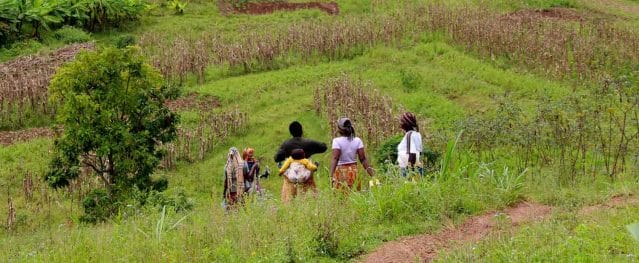
Most women in Rwanda still depend on environmentally harmful and health-damaging firewood as a source of energy. Therefore, measures to improve access to clean and affordable energy are crucial and must be taken at the highest level, said Rwanda’s Minister for Gender and Family Promotion, Prof. Jeanette Bayisenge, at the online launch of the Rwanda segment of the African Development Bank’s new Gender and Energy Country Briefs.
Women should be supported to join the energy sector in Rwanda by improving access to micro-finance and training to allow them to engage in small-scale electricity production, participants heard at a 22 February event on energy policy to correspond with the launch this week.
“Gender equality and the energy sector are two major priority areas of focus in Vision 2050 [Rwanda’s growth plan],” said Bayisenge, whose country has been hailed as a global leader in efforts to achieve gender equality. She said the aim was to ensure high-quality living standards in Rwanda.
The Bank’s Gender Empowerment Manager, Amel Hamza, emphasised the importance of data collection, through the involvement of women engaged in the energy sector and building knowledge on investment opportunities available in the sector.
Hamza said policymakers could learn from successful energy investment initiatives such as South Africa’s Black Economic Empowerment programme, which helped to increase the capacity of women to become independent energy producers that sell power to the national grid.
The Bank is working with energy companies, including South Africa’s Eskom, in a project to provide credit guarantees to enable women seeking to invest in energy enterprises to borrow with support from the Bank’s Africa Guarantee Fund. The project provides risk-sharing capacity to boost loans to women-owned enterprises.
By recognising that men and women have differentiated priorities in energy services, and by involving women in decision-making and creating opportunities for them in energy, the sector can contribute towards increasing gender equality, participants heard.
The Bank supports the implementation of measures to support access to clean cooking fuels, finance, and business opportunities for women, and improving the impact measurement and employment of women in the energy sector, said Fauzia Haji, the Bank’s Acting Country Manager in Rwanda.
The webinar was convened by the African Development Bank, Climate Investment Funds, and the International Network on Gender and Sustainable Energy (ENERGIA), which also developed the Gender and Energy Country Briefs to provide policymakers and practitioners in select countries in East Africa with recommendations to effectively integrate gender in energy planning, implementation and monitoring.
The Rwanda brief is the first to be launched in a series that also covers Uganda, Tanzania and Kenya. The briefs present key data, an overview of the institutional set-ups and targets on gender and energy, and provide an analysis on barriers and opportunities.
